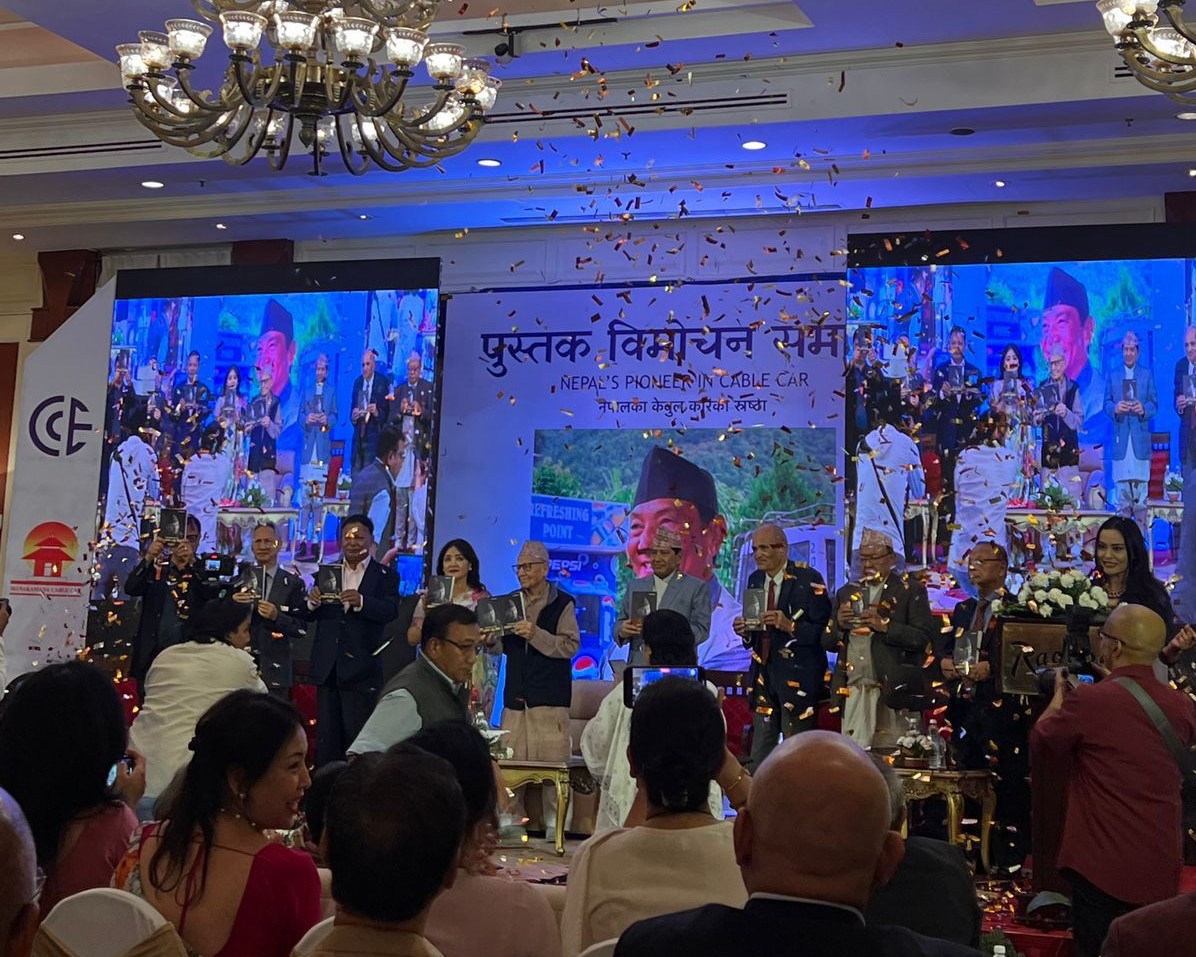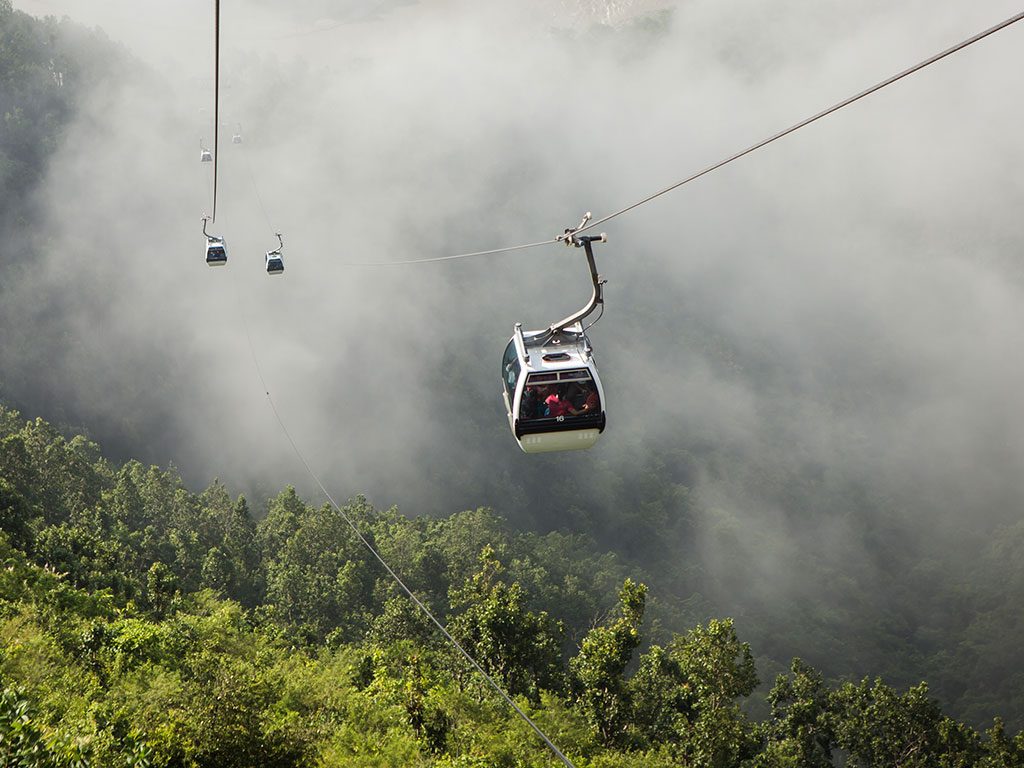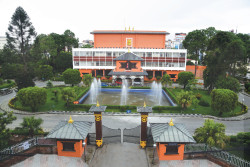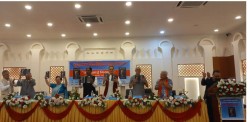Books

Gorkhali Saahas is a biographical memoir of Laxman Babu Shrestha, one of Nepal's prominent yet self-built businessmen who introduced the cable car to Nepal in the mid-1990s. Professor Dr Jaya Raj Acharya and Bibek Gautam, a Canada-based Nepali student doing his Masters on business/project management.
The book tells readers the story of the life and times of Laxman Babu, a happy-go-lucky child born to a local business family from Gorkha in 1992 BS. Three years of effort have gone into the making of this memoir, according to Professor Acharya, the lead author.
The 220-page memoir comes with 16 stand-alone chapters chronicling the travels, travails, and coincidences that in their own ways contributed to the making of a humble man, popularly known by his first and middle name – Laxman Babu. In the public minds, the family name – Shrestha – appears blanked out.
Speaker after speaker addressing a recent book launch event had a few adjectives to depict the character behind the memoir: Affable. Hard-working. Resolute. Patiently impatient. Risk-taker. Far-sighted. Family Man.
Short, insightful chapters scooping into different aspects of Laxman Babu's, based on numerous interviews of people around him – family members and relatives, friends, and those who knew or worked with him closely – corroborate the use of those qualifiers.
At the top of the 11-point synopsis (Page 221) summing up Laxman Babu's life philosophy entwined with his entrepreneurial streaks has "plain" advice: People first.
Laxman Babu did that. He valued friends and friendship; not money or riches. He believed in earning goodwill rather than just making or winning business deals.
He never let his temper get the better of him. That was the general tone of speech that the speakers delivered at the book launch recently. Rightly so.
So, should readers buy a memoir priced NPR 400?
Yes, for sure. All the more so if you are young and possess an entrepreneurial mindset. The memoir offers important life tips, teaches you the nuts and bolts of conducting business, and informed decision-making also arms you with navigation skills.
There is some caveat though. The book subtitle portrays Laxman Babu Shrestha more as Nepal's cable car pioneer – which he certainly is but his legacy far exceeds that of just being Nepal's cable car pioneer.

Laxman Babu Shrestha also built up Nepal's first professional international-class civil engineering and construction firm, Chitawon Co-E Pvt. Ltd., and led Nepal's first hydropower joint-venture in the private sector, the Upper Marsyangdi Hydropower Project with one of China's biggest developers Sino Hydro Ltd.
Last, but not least, is this heartening piece of news: Proceeds from the book will be used to fund social works initiated by Laxman Babu Shrestha Smriti Kosh, a non-profit memorial trust set up by the family and led by Laxman Babu's youngest son Rajesh Babu.






